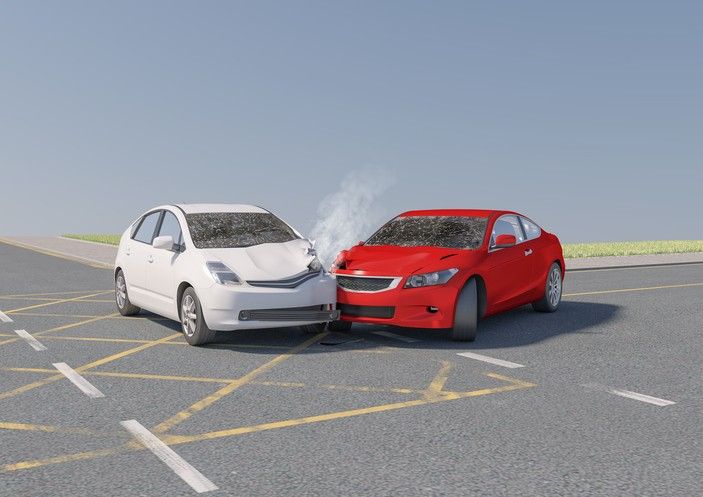Oilfield accidents are unfortunately common in Houston, Texas, where the oil and gas industry is a major economic driver. Whether you’re working on an oil rig, at a drilling site, or in other areas of the oilfield, accidents can lead to serious injuries and even fatalities. Injuries in the oil and gas industry can range from burns and broken bones to catastrophic injuries such as spinal damage, head trauma, or amputation.

If you or a loved one has been involved in an oilfield accident, knowing what steps to take after the incident is critical to securing compensation and protecting your legal rights. This guide outlines the essential actions you should take after an oilfield accident to ensure that you are properly compensated for your injuries and that your case is handled effectively.
1. Ensure Immediate Medical Attention
The first and most important step after an oilfield accident is to seek medical care. Even if your injuries don’t appear severe, it’s essential to get checked by a healthcare professional as soon as possible. Some injuries, like internal bleeding or concussions, may not present symptoms immediately but can become life-threatening if left untreated.
Make sure to:
- Get emergency medical treatment: Call for an ambulance or have someone take you to the nearest hospital.
- Follow medical advice: Ensure that you follow the treatment plan and keep all medical appointments. This is important both for your recovery and to establish a record of your injuries.
- Document injuries: Keep a detailed record of all injuries, medical treatments, surgeries, and follow-up appointments, as these will be important for your legal case.
Your health should always come first, and getting the right treatment as soon as possible will also help build a stronger case for any claims you may make later.
2. Report the Accident
In the aftermath of an oilfield accident, it’s important to report the incident to your employer or the relevant authority immediately. This helps create an official record of the event and ensures that your employer is aware of what happened. Reporting the accident is also critical for triggering insurance claims and workers’ compensation processes.
When reporting the accident:
- Notify your supervisor: If possible, let your supervisor or foreman know about the accident right away.
- Complete necessary paperwork: Many employers have accident report forms that need to be filled out. Ensure that you document the details of the accident, including the time, location, cause of the accident, and the names of any witnesses.
- Request a copy of the report: Ask for a copy of the accident report for your records.
Accurate reporting helps prevent future disputes regarding the cause of the accident or the extent of your injuries. Make sure your account is clear and factual.
3. Gather Evidence
In an oilfield accident case, gathering evidence is a crucial part of protecting your rights and strengthening your claim. The more evidence you have, the better your chances of getting fair compensation. Evidence can help demonstrate how the accident occurred, who was at fault, and the extent of your injuries.
To gather evidence:
- Take photos of the accident scene: If you are physically able, take photos of the accident site, any equipment involved, and your injuries. This can serve as valuable evidence in your case.
- Identify and speak to witnesses: If there were other workers present or nearby, gather their contact information and ask for a statement regarding what they saw. Eyewitness accounts can strengthen your case.
- Keep records of safety violations: If there were any safety violations or hazards on the site that contributed to the accident, document them. This could include faulty equipment, lack of proper safety gear, or failure to follow safety protocols.
The more detailed the evidence, the stronger your case will be. Houston oilfield accident lawyer for serious injury claims can also assist you in collecting evidence and determining what will be most helpful for your case.
4. Notify Your Insurance Provider
After an oilfield accident, you may be entitled to compensation through workers’ compensation, your employer’s insurance, or other insurance policies. It’s essential to notify your insurance provider as soon as possible to initiate the claims process.
When notifying your insurance provider:
- File a claim with workers’ compensation: In Texas, most employers are required to provide workers’ compensation insurance. This system provides benefits to workers who are injured on the job, including medical treatment, wage replacement, and disability benefits.
- Check for third-party insurance: If your injury was caused by a third party (such as a contractor or equipment manufacturer), their insurance might also be liable. Your attorney can help determine if there are other parties who should be held responsible for the accident.
- Be honest and accurate: When you speak with your insurance provider, be truthful about the accident and your injuries. Providing false or incomplete information can delay or jeopardize your claim.
Timely reporting to your insurance provider can help expedite the claims process and ensure that you are receiving the benefits you’re entitled to.
5. Consult with an Oilfield Accident Lawyer
After you’ve taken initial steps to address your health and safety, it’s wise to consult with an experienced oilfield accident lawyer in Houston. A lawyer can help guide you through the complex legal landscape and ensure that your rights are protected. In oilfield accident cases, there are often multiple parties involved, including employers, contractors, and equipment manufacturers, which can make these cases difficult to navigate on your own.
An oilfield accident lawyer can help you by:
- Evaluating your case: A lawyer can assess your case to determine the full extent of your injuries, the potential causes of the accident, and which parties may be liable for your damages.
- Handling legal paperwork: Legal claims often involve complex paperwork and deadlines. A lawyer can ensure that all necessary documents are filed on time and that you don’t miss out on compensation.
- Negotiating with insurance companies: Insurance companies often try to settle claims for as little as possible. Your lawyer can negotiate with insurance providers on your behalf to secure the maximum compensation possible.
- Representing you in court: If your case goes to trial, an attorney can represent you in court and ensure your case is presented effectively.
An experienced lawyer can help you navigate the complicated process of seeking compensation after an oilfield accident, allowing you to focus on your recovery.
6. Understand the Types of Compensation Available
After an oilfield accident, you may be entitled to a variety of compensation types, depending on the nature of your injury and the circumstances surrounding the accident. The primary types of compensation in oilfield accident cases include:
- Medical expenses: Compensation for your current and future medical treatment, including surgeries, rehabilitation, medication, and therapy.
- Lost wages: If you’ve been unable to work due to the accident, you may be entitled to compensation for lost wages during your recovery period. In some cases, you may also be entitled to compensation for future lost wages if your injuries are permanent.
- Pain and suffering: Compensation for the physical pain and emotional distress caused by the accident and your injuries.
- Permanent disability or disfigurement: If your injuries result in permanent disability or disfigurement, you may be entitled to compensation for the long-term impact on your life.
- Wrongful death: If a loved one has died as a result of the oilfield accident, surviving family members may be entitled to compensation through a wrongful death claim.
An experienced oilfield accident lawyer can help you understand the specific types of compensation you may be entitled to based on your circumstances.
7. Stay Involved in Your Case
As your case progresses, it’s important to stay involved and keep track of any developments. This includes attending medical appointments, following your lawyer’s advice, and keeping records of any additional expenses or losses you experience as a result of the accident. Staying proactive in your case can help ensure that you don’t miss any deadlines or opportunities for compensation.
Conclusion
Being involved in an oilfield accident in Houston can be devastating, both physically and financially. However, by following these key steps—seeking medical care, reporting the accident, gathering evidence, notifying insurance, consulting with a lawyer, and understanding your compensation rights—you can protect your interests and increase your chances of recovering the damages you’re entitled to.
If you’ve been seriously injured in an oilfield accident, it’s crucial to consult with an experienced oilfield accident lawyer for serious injury claims. An attorney can guide you through the process, advocate for your rights, and help you secure the compensation you need to move forward with your life.

 November 20th, 2024
November 20th, 2024  admin3
admin3




